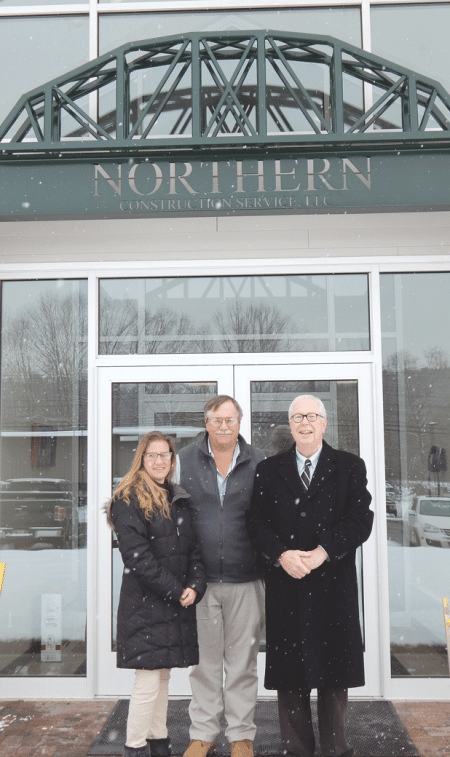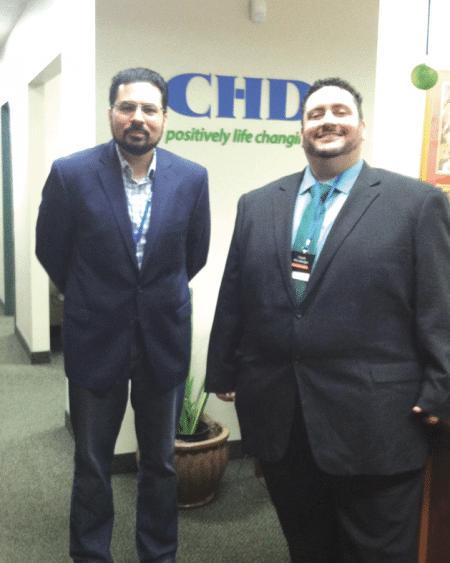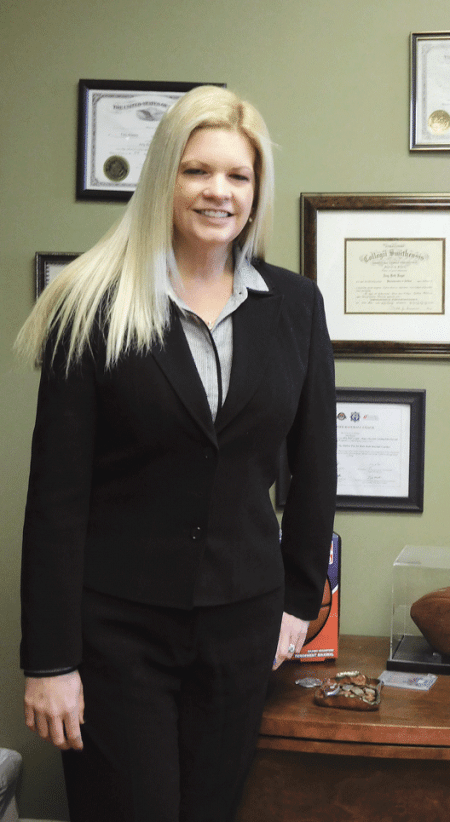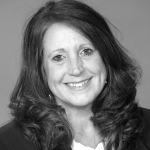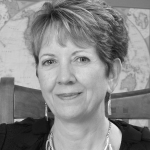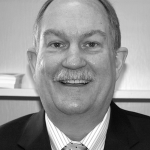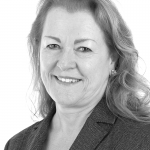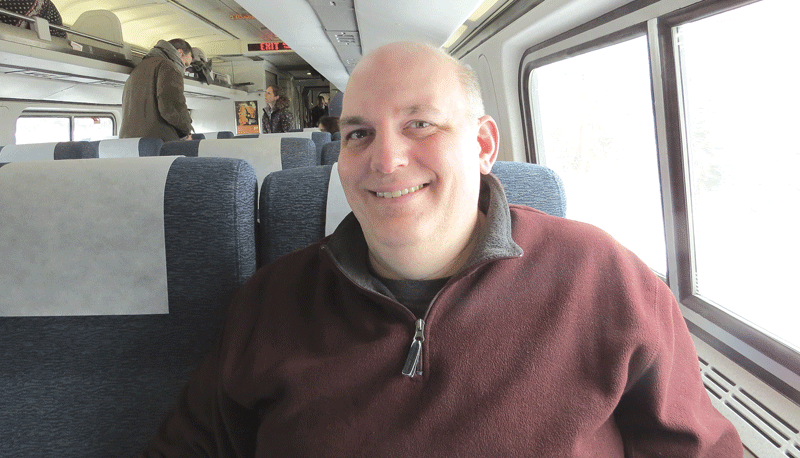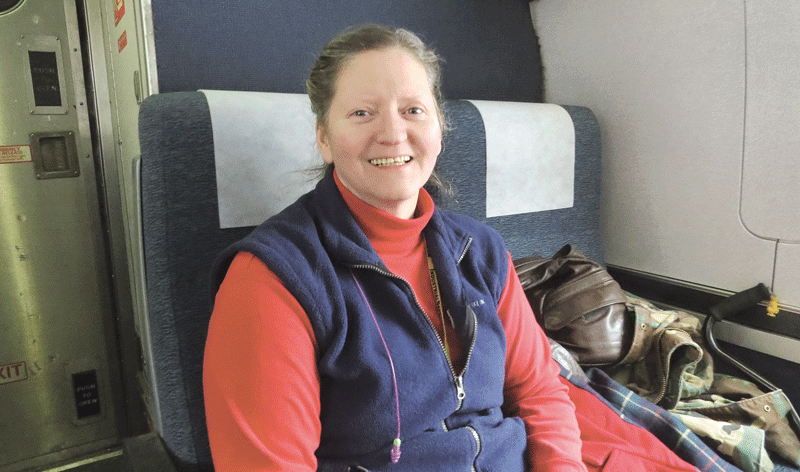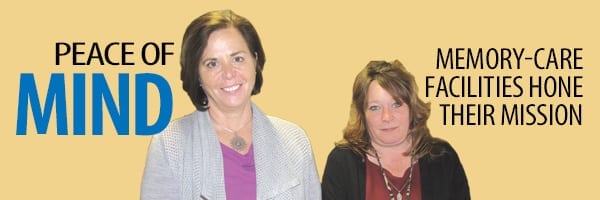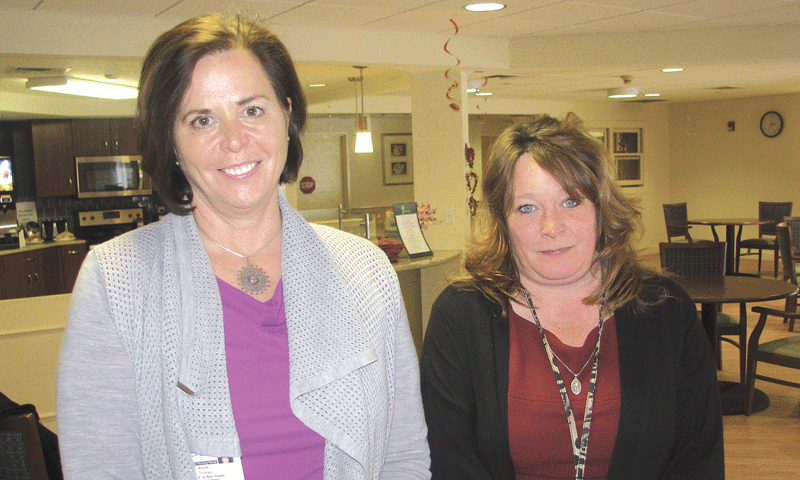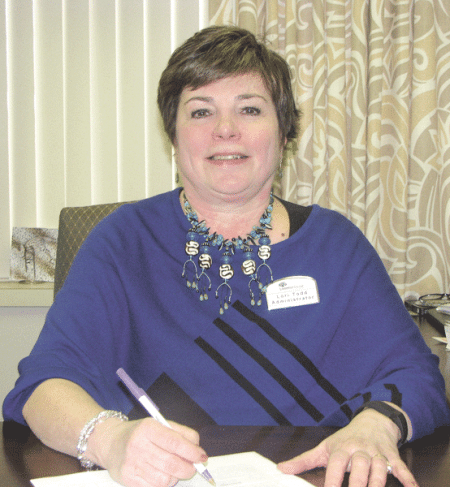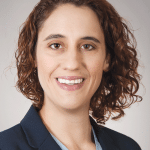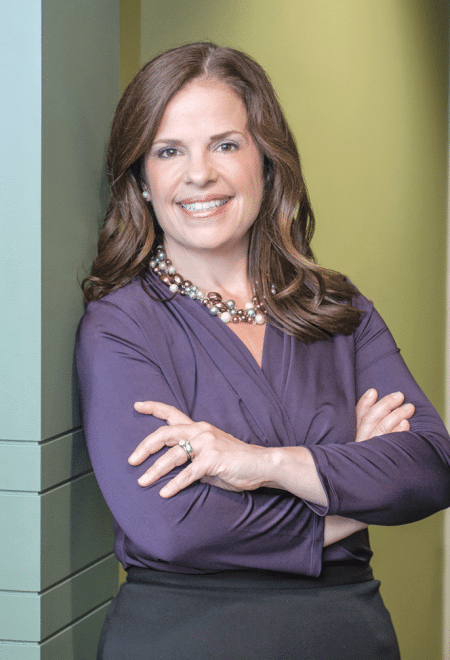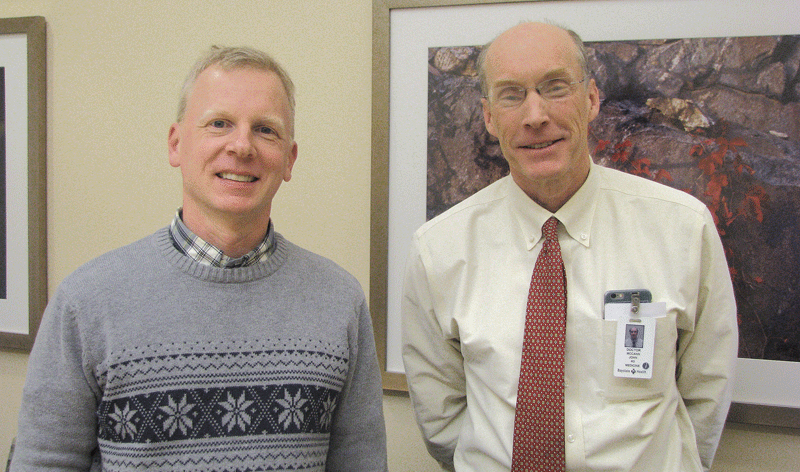The following real estate transactions (latest available) were compiled by Banker & Tradesman and are published as they were received. Only transactions exceeding $115,000 are listed. Buyer and seller fields contain only the first name listed on the deed.
FRANKLIN COUNTY
BERNARDSTON
91 West Mountain Road
Bernardston, MA 01337
Amount: $260,831
Buyer: FNMA
Seller: Mark Healy
Date: 01/04/16
BUCKLAND
4 Clement St.
Buckland, MA 01338
Amount: $220,000
Buyer: Jesus Salgado
Seller: Patricia A. Donohue
Date: 01/06/16
27 Orcutt Hill Road
Buckland, MA 01338
Amount: $465,000
Buyer: John R. Holden
Seller: Ruth M. Bosch
Date: 01/07/16
CONWAY
500 Graves Road
Conway, MA 01341
Amount: $325,000
Buyer: William J. O’Neil
Seller: Pamela M. Fisk
Date: 01/11/16
59 Shelburne Falls Road
Conway, MA 01341
Amount: $275,000
Buyer: Gregory D. Smith
Seller: James Boehmer
Date: 01/08/16
DEERFIELD
16 Crestview Dr.
Deerfield, MA 01373
Amount: $650,000
Buyer: Jocelin Cesar
Seller: Shaohua Chen
Date: 01/11/16
10 Jones Road
Deerfield, MA 01342
Amount: $235,900
Buyer: David B. Grace
Seller: Phillip W. Cole
Date: 01/12/16
ERVING
8 Union St.
Erving, MA 01344
Amount: $165,000
Buyer: Patrick J. Chase
Seller: Jason T. Liimatainen
Date: 01/05/16
GILL
89 Franklin Road
Gill, MA 01354
Amount: $145,000
Buyer: Dominic A. Pugliese
Seller: Edwin W. Niedbala
Date: 01/14/16
33 French King Hwy.
Gill, MA 01354
Amount: $196,500
Buyer: Joseph C. Yukl
Seller: John E. Doleva
Date: 01/15/16
GREENFIELD
16 Peabody Lane
Greenfield, MA 01301
Amount: $258,500
Buyer: Christopher H. Klosson
Seller: Julie C. Beaudoin
Date: 01/13/16
30-32 Silver St.
Greenfield, MA 01301
Amount: $115,000
Buyer: Grinnell Properties LLC
Seller: Greenfield Savings
Date: 01/06/16
52 Verde Dr.
Greenfield, MA 01301
Amount: $280,000
Buyer: Joseph P. Klepadlo
Seller: Greenfield KMW LLC
Date: 01/12/16
55 White Birch Ave.
Greenfield, MA 01301
Amount: $131,500
Buyer: Darlene A. Holland
Seller: US Bank
Date: 01/04/16
35 Wildwood Ave.
Greenfield, MA 01301
Amount: $159,050
Buyer: Laura Luker
Seller: Michel W. Lafantano
Date: 01/15/16
LEVERETT
79 Hemenway Road
Leverett, MA 01054
Amount: $190,000
Buyer: Patrick R. Jernigan
Seller: Roberts, Doris H., (Estate)
Date: 01/08/16
ORANGE
124 Drew Blvd.
Orange, MA 01364
Amount: $187,145
Buyer: FNMA
Seller: Joanne Rancourt
Date: 01/15/16
SHUTESBURY
21 Sand Hill Road
Shutesbury, MA 01072
Amount: $199,900
Buyer: Edward P. Mikalunas
Seller: Deborah J. Campbell
Date: 01/14/16
SUNDERLAND
346 North Main St.
Sunderland, MA 01375
Amount: $300,000
Buyer: Martin Nystrom
Seller: Shirley P. Tower
Date: 01/14/16
WHATELY
223 River Road
Whately, MA 01093
Amount: $230,000
Buyer: Timothy Viens
Seller: Mindy T. Thach
Date: 01/04/16
HAMPDEN COUNTY
AGAWAM
138 Elmar Dr.
Agawam, MA 01030
Amount: $185,000
Buyer: Gina G. Daniele
Seller: Eric J. Vieu
Date: 01/06/16
71 Garden St.
Agawam, MA 01030
Amount: $350,000
Buyer: ASDA LLC
Seller: Rosemarie E. Kieffer
Date: 01/13/16
69 Randall St.
Agawam, MA 01001
Amount: $141,000
Buyer: Robert H. Greany
Seller: Thelma U. Troie
Date: 01/08/16
216 School St.
Agawam, MA 01001
Amount: $250,000
Buyer: Thomas J. Wehr
Seller: Marlene Lovely
Date: 01/13/16
1004 Springfield St.
Agawam, MA 01030
Amount: $355,000
Buyer: 1004 Springfield St. LLC
Seller: Ellsworth W. Smith
Date: 01/08/16
31 Strawberry Hill Road
Agawam, MA 01030
Amount: $317,581
Buyer: US Bank
Seller: Richard J. Santore
Date: 01/15/16
124 Witheridge St.
Agawam, MA 01030
Amount: $415,000
Buyer: Beth J. Kanjau
Seller: Joseph Kot
Date: 01/15/16
BLANDFORD
43 Otis Tolland Road
Blandford, MA 01008
Amount: $365,000
Seller: James W. Lafleur
Date: 01/15/16
CHESTER
74 Kinnebrook Road
Chester, MA 01011
Amount: $250,000
Buyer: Nicholas A. Schwartz
Seller: Douglas L. Rockwell
Date: 01/15/16
CHICOPEE
311 East St.
Chicopee, MA 01020
Amount: $185,000
Buyer: Gabriel Martinez
Seller: Costas D. Anamisis
Date: 01/13/16
88 Edmund St.
Chicopee, MA 01020
Amount: $145,000
Buyer: Casey J. Roginski
Seller: James M. Szczur
Date: 01/15/16
342 Front St.
Chicopee, MA 01013
Amount: $152,500
Buyer: NAP Properties LLC
Seller: K&A LLC
Date: 01/05/16
101 Holyoke Ave.
Chicopee, MA 01020
Amount: $198,000
Buyer: Sydney J. Roy
Seller: Nathan T. Baker
Date: 01/08/16
55 Julia Ave.
Chicopee, MA 01020
Amount: $157,782
Buyer: Karen Ayers
Seller: William J. Ayers
Date: 01/15/16
18 Nash St.
Chicopee, MA 01013
Amount: $173,500
Buyer: Ramon Alvarez
Seller: Brett A. Civetti
Date: 01/15/16
65 Pondview Dr.
Chicopee, MA 01020
Amount: $139,500
Buyer: Maura M. Livingstone
Seller: Mary L. Coalson
Date: 01/06/16
74 Saint Jacques Ave.
Chicopee, MA 01020
Amount: $130,000
Buyer: Ronald J. Pete
Seller: Anthony A. Grasso
Date: 01/14/16
24 Wilfred St.
Chicopee, MA 01020
Amount: $240,000
Buyer: Matthew Turner
Seller: Vladimir Romanchenko
Date: 01/13/16
EAST LONGMEADOW
76 Brookhaven Dr.
East Longmeadow, MA 01028
Amount: $310,000
Buyer: Melanie Bliss
Seller: Antonio Truoiolo
Date: 01/08/16
61 Evergreen Dr.
East Longmeadow, MA 01028
Amount: $371,500
Buyer: Michael J. Carney
Seller: Chaula K. Vora
Date: 01/15/16
Glynn Farms Dr.
East Longmeadow, MA 01028
Amount: $116,000
Buyer: Sugar Magnolia RT
Seller: David R. Baker
Date: 01/12/16
94 Maple St.
East Longmeadow, MA 01028
Amount: $1,750,000
Buyer: Oh Hey Beth LLC
Seller: 94 Maple Street LLC
Date: 01/11/16
186 Mapleshade Ave.
East Longmeadow, MA 01028
Amount: $173,000
Buyer: Beth E. Fratini
Seller: Judith L. Kelliher
Date: 01/15/16
520 North Main St.
East Longmeadow, MA 01028
Amount: $260,000
Buyer: Cafe CT LLC
Seller: Antonio Coelho
Date: 01/06/16
7 Odion St.
East Longmeadow, MA 01028
Amount: $218,900
Buyer: German Garcia
Seller: Kevin M. Reed
Date: 01/06/16
21 Oxford Lane
East Longmeadow, MA 01028
Amount: $405,000
Buyer: Antonio Truoiolo
Seller: Thomas P. Hanifan
Date: 01/08/16
Pondview Dr.
East Longmeadow, MA 01028
Amount: $140,000
Buyer: Custom Homes Development Group
Seller: Joseph Chapdelaine & Sons
Date: 01/07/16
235 Prospect St.
East Longmeadow, MA 01028
Amount: $200,000
Buyer: Reid Hunter
Seller: Debra J. Hunter
Date: 01/14/16
518 Shaker Road
East Longmeadow, MA 01028
Amount: $345,000
Buyer: Dennis A. Chaffee
Seller: JP Rentals Inc.
Date: 01/15/16
GRANVILLE
272 Silver St.
Granville, MA 01034
Amount: $150,000
Buyer: John P. Yeakley
Seller: Travis A. Gaffey
Date: 01/08/16
25 Sodom St.
Granville, MA 01034
Amount: $235,000
Buyer: Alexander N. Bineault
Seller: Gail P. Fitzgerald
Date: 01/11/16
HAMPDEN
77 Carmody Road
Hampden, MA 01036
Amount: $180,000
Buyer: Yellowbrick Property LLC
Seller: Marth-E LLC
Date: 01/13/16
11 Maple Grove Road
Hampden, MA 01036
Amount: $378,500
Buyer: Mark Tobias
Seller: Jerry Ago
Date: 01/04/16
365 South Road
Hampden, MA 01036
Amount: $338,900
Buyer: Robert Vanwart
Seller: James K. Quackenbush
Date: 01/07/16
198 Stafford Road
Hampden, MA 01036
Amount: $340,000
Buyer: Johnny J. Johnson
Seller: Jeffrey N. Schneider
Date: 01/11/16
66 Woodland Dr.
Hampden, MA 01036
Amount: $203,000
Buyer: Mary Persaud
Seller: O’Donnell, William J., (Estate)
HOLLAND
242 Mashapaug Road
Holland, MA 01521
Amount: $170,000
Buyer: Scott Alexander
Seller: Daniel J. Shea
Date: 01/11/16
HOLYOKE
8 Bayberry Dr.
Holyoke, MA 01040
Amount: $223,500
Buyer: Kenneth R. Allen
Seller: Phillip A. Lees
Date: 01/15/16
173-175 Brown Ave.
Holyoke, MA 01040
Amount: $205,000
Buyer: Angel L. Rodriguez
Seller: Raymond F. Turgeon
Date: 01/04/16
17 Holly Meadow Road
Holyoke, MA 01040
Amount: $355,000
Buyer: Ryan Hamel
Seller: Adele M. Stiles
Date: 01/15/16
7 Thorpe Ave.
Holyoke, MA 01040
Amount: $470,000
Buyer: Yarland Properties LLC
Seller: Hilltop Garden Apartments
Date: 01/08/16
222 West Franklin St.
Holyoke, MA 01040
Amount: $122,000
Buyer: Marisol Figueroa
Seller: Elizabeth Rivera
Date: 01/06/16
330 Walnut St.
Holyoke, MA 01040
Amount: $128,284
Buyer: Miriam Villa-Ayala
Seller: Jeffrey Ocampo
Date: 01/07/16
LONGMEADOW
275 Burbank Road
Longmeadow, MA 01106
Amount: $268,250
Buyer: Brendan Fitzgerald
Seller: David Trenkner
Date: 01/05/16
429 Frank Smith Road
Longmeadow, MA 01106
Amount: $255,000
Buyer: Yisroel Gesin
Seller: Joseph A. Garofalo
Date: 01/04/16
1069 Frank Smith Road
Longmeadow, MA 01106
Amount: $319,900
Buyer: Douglas Ferro
Seller: Ira Smolowitz
Date: 01/08/16
119 Maple Road
Longmeadow, MA 01106
Amount: $190,000
Buyer: Kylee C. Granfield
Seller: Erin E. Carney
Date: 01/15/16
57 Maplewood St.
Longmeadow, MA 01106
Amount: $240,000
Buyer: Esther M. Kim
Seller: Carl W. Janovsky
Date: 01/05/16
227 Sheffield Ave.
Longmeadow, MA 01106
Amount: $344,500
Buyer: David F. Czaporowski
Seller: Matthew C. Szostkiewicz
Date: 01/15/16
97 Tecumseh Dr.
Longmeadow, MA 01106
Buyer: Shambhu Rana
Seller: Sodi Inc.
Date: 01/04/16
LUDLOW
68 Amherst St.
Ludlow, MA 01056
Amount: $215,000
Buyer: Stanley P. Ryczek
Seller: Catherine L. Benoit
Date: 01/15/16
163 Cady St.
Ludlow, MA 01056
Amount: $229,900
Buyer: Fernando L. Ribeiro
Seller: Arthur A. Flanagan
Date: 01/08/16
8 Daisy Lane
Ludlow, MA 01056
Amount: $340,000
Buyer: Susan A. Theriault
Seller: Carlos Genovevo
Date: 01/11/16
105 Kirkland Ave.
Ludlow, MA 01056
Amount: $140,000
Buyer: Manuel Palatino
Seller: David A. Fontaine
Date: 01/13/16
653 Moore St.
Ludlow, MA 01056
Amount: $775,000
Buyer: Tarpon Towers 2 LLC
Seller: Charter Communications
Date: 01/13/16
MONSON
East Hill Road
Monson, MA 01057
Amount: $465,000
Buyer: Craig Levesque
Seller: Heriberto Flores
Date: 01/15/16
35 Elm St.
Monson, MA 01057
Amount: $127,000
Buyer: Erica M. Brunell
Seller: Bayview Loan Servicing
Date: 01/06/16
24 Old Wales Road
Monson, MA 01057
Amount: $281,000
Buyer: Keith M. Ostrander
Seller: William J. O’Neil
Date: 01/05/16
MONTGOMERY
244 Main Road
Montgomery, MA 01085
Amount: $120,900
Buyer: Geoffrey J. Boisjolie
Seller: Alan L. Blair
Date: 01/15/16
PALMER
251 Boston Road
Palmer, MA 01069
Amount: $228,000
Buyer: Adam L. Norton
Seller: James J. Mooney
Date: 01/14/16
24 Breton St.
Palmer, MA 01069
Amount: $170,300
Buyer: Jessy I. Salsbury
Seller: Barnes, Joyce M., (Estate)
Date: 01/06/16
37 Ford St.
Palmer, MA 01080
Amount: $120,000
Buyer: Stacey Gould
Seller: Wilga, Mary A., (Estate)
Date: 01/15/16
1060 Overlook Dr.
Palmer, MA 01069
Amount: $179,000
Buyer: Kimberly Bailey
Seller: Ryan M. McMullen
Date: 01/06/16
2118-2120 Palmer Road
Palmer, MA 01080
Amount: $176,000
Buyer: Alyson Hann
Seller: James F. Shea
Date: 01/04/16
RUSSELL
368 Blandford Road
Russell, MA 01071
Amount: $181,600
Buyer: Wells Fargo Bank
Seller: Diane Raczkowski
Date: 01/14/16
SOUTHWICK
300 College Highway
Southwick, MA 01077
Amount: $170,000
Buyer: TSC Enterprises LLC
Seller: David B. Spillane
Date: 01/08/16
194 Feeding Hills Road
Southwick, MA 01077
Amount: $350,000
Buyer: Dale T. Lafayette
Seller: Lynn K. Mcmullin
Date: 01/08/16
15 Overlook Lane
Southwick, MA 01077
Amount: $150,000
Buyer: Alla Burkovskiy
Seller: Pinnacle Estates At Ranch
Date: 01/12/16
4 Pearl Brook Road
Southwick, MA 01077
Amount: $356,000
Buyer: Gary R. Allen
Seller: Thomas A. Wood
Date: 01/15/16
285 South Longyard Road
Southwick, MA 01077
Amount: $169,000
Buyer: Rebecca M. Joslin
Seller: Dale T. Lafayette
Date: 01/08/16
24 South Loomis St.
Southwick, MA 01077
Amount: $235,000
Buyer: Robert Dale-Brodhagen
Seller: Stephen H. Couture
Date: 01/15/16
28 Woodside Circle
Southwick, MA 01077
Amount: $264,000
Buyer: James W. Lafleur
Seller: Francisco J. Sole
Date: 01/15/16
SPRINGFIELD
68 Birchland Ave.
Springfield, MA 01119
Amount: $156,000
Buyer: Debra A. Gomes
Seller: Penniman, Mildred M., (Estate)
Date: 01/08/16
26 Burnside Terrace
Springfield, MA 01118
Amount: $135,000
Buyer: Jolene Alexander
Seller: Jackson H. Williams
Date: 01/07/16
169 Cambria St.
Springfield, MA 01118
Amount: $125,000
Buyer: Joseph F. Marrin
Seller: Patricia Fahey
Date: 01/11/16
13 Campechi St.
Springfield, MA 01104
Amount: $118,000
Buyer: Robert J. Gronstalski
Seller: Bryce G. Menninga
Date: 01/15/16
19 Chalfonte Dr.
Springfield, MA 01118
Amount: $169,500
Buyer: Lauren Dembek
Seller: Robert M. Wood
Date: 01/06/16
88-90 Cherrelyn St.
Amount: $134,000
Buyer: Corey A. Elias
Seller: City Joe LLC
Date: 01/15/16
14 Chesterfield Ave.
Springfield, MA 01118
Amount: $160,000
Buyer: Patrick J. Denault
Seller: William Raleigh
Date: 01/07/16
7 Dana St.
Springfield, MA 01104
Amount: $159,000
Buyer: Sergul Durdu
Seller: George S. Elias
Date: 01/07/16
43 Dana St.
Springfield, MA 01104
Amount: $145,000
Buyer: Rafael Carrasquillo
Seller: Timothy P. Dunn
Date: 01/14/16
26 Delano Dr.
Springfield, MA 01129
Amount: $170,000
Buyer: Christina Dacruz
Seller: Timothy Clark
Date: 01/08/16
95 Fenimore Blvd.
Springfield, MA 01108
Amount: $169,500
Buyer: Tyrus T. Ferguson
Seller: Wendy M. Crews
Date: 01/11/16
Florence St. #26
Springfield, MA 01101
Amount: $158,000
Buyer: Bennie E. Nieves
Seller: Viva Development LLC
Date: 01/12/16
42 Francis St.
Springfield, MA 01104
Amount: $129,000
Buyer: Andrew P. Condino
Seller: Helen Banas
Date: 01/15/16
37 Grenada Terrace
Springfield, MA 01108
Amount: $165,000
Buyer: Octavio Mendez
Seller: Matthew J. Turner
Date: 01/13/16
217 Hanson Dr.
Springfield, MA 01128
Amount: $138,000
Buyer: Lee Dutil
Seller: Deborah Tracy
Date: 01/06/16
12 Jimmy Court
Springfield, MA 01104
Amount: $169,000
Buyer: Jose Colon
Seller: Henry P. Garcia
Date: 01/15/16
67 Jordan St.
Springfield, MA 01129
Amount: $188,000
Buyer: Aaron R. Goncalves
Seller: Pszczyna RT
Date: 01/07/16
64 Joseph St.
Springfield, MA 01119
Amount: $290,679
Buyer: Wells Fargo Bank
Seller: Regina Torres
Date: 01/12/16
16 Kay St.
Springfield, MA 01109
Amount: $123,000
Buyer: HSBC Bank
Seller: Maurice P. Tillman
Date: 01/11/16
36 Lumae St.
Springfield, MA 01119
Amount: $130,000
Buyer: Duc T. Le
Seller: Le T. Le
Date: 01/14/16
53 Murray Hill Ave.
Springfield, MA 01104
Amount: $147,300
Buyer: Richard R. Wilkins
Seller: Robert J. Smith
Date: 01/05/16
11 Newhall St.
Springfield, MA 01109
Amount: $121,000
Buyer: Deutsche Bank
Seller: Deborah J. Hawley
Date: 01/11/16
271 Newton Road
Springfield, MA 01118
Amount: $181,000
Buyer: Thomas J. Murphy
Seller: Timothy J. O’Brien
Date: 01/12/16
2015 Page Blvd.
Springfield, MA 01151
Amount: $150,000
Buyer: Marianna S. Stack
Seller: Walter A. Kraftchick
Date: 01/11/16
59 Pinevale St.
Springfield, MA 01151
Amount: $177,000
Buyer: Raddy O. Nunez
Seller: KEM Management LLC
Date: 01/07/16
15 Pocantico Ave.
Springfield, MA 01109
Amount: $182,000
Buyer: Paul Nganga
Seller: Daniel R. Flexer
Date: 01/14/16
117 Portulaca Dr.
Springfield, MA 01129
Amount: $152,000
Buyer: Tamari J. Martinez
Seller: Nathaniel M. Murray
Date: 01/05/16
79 Powell Ave.
Springfield, MA 01118
Amount: $134,900
Buyer: Michelle D. Dechristopher
Seller: Tyrus T. Ferguson
Date: 01/11/16
163-165 Prospect St.
Springfield, MA 01107
Amount: $157,000
Buyer: Yeison Ramirez
Seller: Begaina Lopez
Date: 01/08/16
15 Rollins St.
Springfield, MA 01109
Amount: $142,383
Buyer: Sergey Savonin
Seller: James W. Fiore
Date: 01/05/16
50 Rollins St.
Springfield, MA 01109
Amount: $122,000
Buyer: Cassandra Martinez
Seller: Jonathan K. Willoughby
Date: 01/05/16
378 Roosevelt Ave.
Springfield, MA 01118
Amount: $153,000
Buyer: Mark Szydlowski
Seller: John E. Moore
Date: 01/14/16
1385 South Branch Pkwy.
Springfield, MA 01129
Amount: $200,000
Buyer: James L. Lobik
Seller: Martin J. Lobik
Date: 01/15/16
6 Talcott St.
Springfield, MA 01107
Amount: $180,000
Buyer: Iglesia Bethsaida Inc.
Seller: Iglesia Pentecostal Fuent
Date: 01/12/16
100 Tallyho Dr.
Springfield, MA 01118
Amount: $184,900
Buyer: Sheena M. Zerfas
Seller: John J. Lyons
Date: 01/11/16
58-60 Wilmont St.
Springfield, MA 01108
Amount: $122,900
Buyer: Luz M. Cartagena
Seller: Izzo, Filomena, (Estate)
Date: 01/14/16
24-26 Wolcott St.
Springfield, MA 01104
Amount: $128,200
Buyer: Tiffany S. Williams
Seller: Patrick M. Shea
Date: 01/15/16
WALES
14 Shaw Road
Wales, MA 01081
Amount: $160,000
Buyer: Taylor D. Kibbe
Seller: Gary S. Pfisterer
Date: 01/12/16
WEST SPRINGFIELD
103 Herrman St.
West Springfield, MA 01089
Amount: $192,500
Buyer: Stephanie R. Dowers
Seller: Freshour, John H., (Estate)
Date: 01/04/16
39 Hillcrest Ave.
West Springfield, MA 01089
Amount: $237,000
Buyer: John R. Bowers
Seller: Ann E. Phaneuf
Date: 01/08/16
30 Kings Hwy.
West Springfield, MA 01089
Amount: $185,500
Buyer: Oliva V. Ricks
Seller: Camilo M. Cunha
Date: 01/15/16
111 Lancaster Ave.
West Springfield, MA 01089
Amount: $218,500
Buyer: William J. Behler
Seller: Keith A. Supinski
Date: 01/15/16
44 Morningside Terrace
West Springfield, MA 01089
Amount: $150,000
Buyer: Mandy C. Chan
Seller: Donald Pomeroy
Date: 01/08/16
39 Mulcahy Dr.
West Springfield, MA 01089
Amount: $424,900
Buyer: Hassen M. Borhot
Seller: Francis Wheeler Constr
Date: 01/07/16
Piper Road
West Springfield, MA 01089
Amount: $331,000
Buyer: Country Club Partners LLC
Seller: Entrust New England LLC
Date: 01/12/16
294 Piper Road
West Springfield, MA 01089
Amount: $189,900
Seller: Raymond M. Dutkiewicz
Date: 01/07/16
885 Riverdale St.
West Springfield, MA 01089
Amount: $2,050,000
Buyer: 66 West Springfield Realty
Seller: Veerji LLC
Date: 01/07/16
75 Sagamore Road
West Springfield, MA 01089
Amount: $205,500
Buyer: Gary P. Acebuche
Seller: Terence J. Hurlbut
Date: 01/06/16
WESTFIELD
56 Airport Road
Westfield, MA 01085
Amount: $275,000
Buyer: Jarvis Surgical Inc.
Seller: Lawry Realty LLC
Date: 01/15/16
39 Crane Ave.
Westfield, MA 01085
Amount: $137,500
Buyer: Nadezhda Shlykova
Seller: Ruth M. Minkus
Date: 01/07/16
53 Day Ave.
Westfield, MA 01085
Amount: $170,000
Buyer: Kelli A. McLean
Seller: Antoinette M. McLean
Date: 01/13/16
78 Granville Road
Westfield, MA 01085
Amount: $357,920
Buyer: Jeffrey V. Cormier
Seller: Granville Road LLC
Date: 01/08/16
46 Holland Ave.
Westfield, MA 01085
Amount: $117,000
Buyer: Wells Fargo Bank
Seller: Roberto F. Deza
Date: 01/14/16
113 Lindbergh Blvd.
Westfield, MA 01085
Amount: $180,000
Buyer: Michael P. Daly
Seller: Robert K. Walker
Date: 01/05/16
24 Llewellyn Dr.
Westfield, MA 01085
Amount: $165,000
Buyer: Johnny D. Hor
Seller: Robert R. Lees
Date: 01/15/16
69 Michael Dr.
Westfield, MA 01085
Amount: $296,000
Buyer: Keith A. Supinski
Seller: Debra A. Post
Date: 01/15/16
35 Northwest Road
Westfield, MA 01085
Amount: $194,500
Buyer: Amanda M. Leclair
Seller: Wanda L. Lafogg
Date: 01/04/16
74 Old Holyoke Road
Westfield, MA 01085
Amount: $220,000
Buyer: John E. Prenosil
Seller: Westfield Meadow Corp.
Date: 01/11/16
77 Ridgecrest Circle
Westfield, MA 01085
Amount: $270,000
Buyer: Thomas E. McMahon
Seller: Steven Webersen
Date: 01/14/16
58 Ridgeway St.
Westfield, MA 01085
Amount: $153,729
Buyer: US Bank
Seller: Raymond Brouillette
Date: 01/13/16
46 Vadnais St.
Westfield, MA 01085
Amount: $126,500
Buyer: Aaron M. Kline
Seller: Steve N. Spelman
Date: 01/05/16
86 Western Ave.
Westfield, MA 01085
Amount: $275,000
Buyer: Stuart B. Markey
Seller: Marsha A. Hubbs
Date: 01/11/16
WILBRAHAM
464 Dipping Hole Road
Wilbraham, MA 01095
Amount: $279,000
Buyer: Jeffrey A. Pelletier
Seller: David P. Brooks
Date: 01/12/16
40 Dumaine St.
Wilbraham, MA 01095
Amount: $135,000
Buyer: Kids Dentist Realty LLC
Seller: Grahams Construction Inc.
Date: 01/12/16
Stonington Dr. #14
Wilbraham, MA 01095
Amount: $140,000
Buyer: Peter D. Martins
Seller: Silo Farm Associates LLC
Date: 01/08/16
HAMPSHIRE COUNTY
AMHERST
415 Shays St.
Amherst, MA 01002
Amount: $161,500
Buyer: John G. Gummere
Seller: Kennick, William E., (Estate)
Date: 01/13/16
BELCHERTOWN
28 Bardwell St.
Belchertown, MA 01007
Amount: $419,900
Buyer: Rebecca L. Flores
Seller: Ronald J. Chiasson
Date: 01/15/16
66 Chadbourne Road
Belchertown, MA 01007
Amount: $125,000
Buyer: Carleen S. Sullivan
Seller: Deborah L. Dunbar
Date: 01/04/16
29 Emily Lane
Belchertown, MA 01007
Amount: $393,700
Buyer: David P. Krause
Seller: JP Builders Inc.
Date: 01/14/16
205 Orchard St.
Belchertown, MA 01007
Amount: $255,000
Buyer: Sara B. Trowbridge
Seller: L. P. Audette Builders Inc.
Date: 01/05/16
131 Warner St.
Belchertown, MA 01007
Amount: $281,000
Buyer: Loretta W. Lyons
Seller: Michele F. Critelli
Date: 01/04/16
CUMMINGTON
16 Jordan Road
Cummington, MA 01026
Amount: $246,500
Buyer: Nathan Buckhout
Seller: Gregory A. Jordan
Date: 01/04/16
EASTHAMPTON
10 Alden St.
Easthampton, MA 01027
Amount: $208,500
Buyer: Jacqueline B. Siller
Seller: Brousseau, Barbara A., (Estate)
Date: 01/04/16
7 Allen St.
Easthampton, MA 01027
Amount: $215,000
Buyer: Ruth A. Barrett IRT
Seller: Rita L. Bartlett
Date: 01/08/16
418 East St.
Easthampton, MA 01027
Amount: $217,500
Buyer: Timothy J. Senecal
Seller: Julie K. Albetski
Date: 01/15/16
6 Loudville Road
Easthampton, MA 01027
Amount: $120,000
Buyer: Rambo Financial RET
Seller: Bernard W. Bostick
Date: 01/12/16
65 Maple St.
Easthampton, MA 01027
Amount: $225,000
Buyer: David P. Lang
Seller: Richard W. Koloszyc
Date: 01/08/16
22 Matthew Dr.
Easthampton, MA 01027
Amount: $275,000
Buyer: Ryan W. Gaw
Seller: Edward A. Zmuda
Date: 01/15/16
171 Park St.
Easthampton, MA 01027
Amount: $202,000
Buyer: James M. Hewitt
Seller: Rabideau, Julia S., (Estate)
Date: 01/14/16
30 Pomeroy St.
Easthampton, MA 01027
Amount: $255,000
Buyer: Michael J. O’Connor
Seller: Herbert A. Peterson
Date: 01/08/16
119 West St.
Easthampton, MA 01027
Amount: $220,000
Buyer: John A. Deiling
Seller: Nancy F. Macdonald RET
Date: 01/05/16
HADLEY
65 Bay Road
Hadley, MA 01035
Amount: $270,000
Buyer: Ellen T. Miller-Mack
Seller: Robert J. Caporale
Date: 01/12/16
121 Huntington Road
Hadley, MA 01035
Amount: $260,000
Buyer: Earle Shumway
Seller: Gerard P. Goodsell
Date: 01/06/16
75 River Dr.
Hadley, MA 01035
Amount: $485,000
Buyer: Charlene L. Patenaude
Seller: Andre R. Laflamme
Date: 01/13/16
51 Rocky Hill Road
Hadley, MA 01035
Amount: $125,000
Buyer: David Lavalle
Seller: C. V. Jr. & M. A. Wilda RET
Date: 01/12/16
36 Stockbridge Road
Hadley, MA 01035
Amount: $130,000
Buyer: Joan Zaskey
Seller: Zaskey, Frank, (Estate)
Date: 01/04/16
93 Stockbridge Road
Hadley, MA 01035
Amount: $385,000
Buyer: Servicenet Inc.
Seller: Eileen M. Reopel
Date: 01/12/16
28 Stockwell Road
Hadley, MA 01035
Amount: $348,500
Buyer: Andre R. Laflamme
Seller: William J. Kennedy
Date: 01/15/16
HUNTINGTON
10 Harlow Clark Road
Huntington, MA 01050
Amount: $208,000
Buyer: Christopher M. Carbone
Seller: Henry H. Wortis
Date: 01/15/16
29 Harlow Clark Road
Huntington, MA 01050
Amount: $285,000
Buyer: James Waters
Seller: Wayne V. Brown
Date: 01/11/16
218 Norwich Lake
Huntington, MA 01050
Amount: $270,000
Buyer: Jeffrey T. Prince
Seller: Albert K. Whitaker
Date: 01/15/16
99 Searle Road
Huntington, MA 01050
Amount: $202,500
Buyer: Kellie E. Riel
Seller: Stephan W. Manley
Date: 01/08/16
NORTHAMPTON
1135 Burts Pit Road
Northampton, MA 01062
Amount: $240,000
Buyer: Hector L. Rivera-Delbusto
Seller: Powers, Sophie H., (Estate)
Date: 01/12/16
97 Locust St.
Northampton, MA 01060
Amount: $235,000
Buyer: Jaynjane LLC
Seller: 97 Locust Street RT
Date: 01/06/16
370 Spring St.
Northampton, MA 01062
Amount: $599,000
Buyer: Scott W. Remick
Seller: Robert G. Haxby
Date: 01/15/16
239 State St.
Northampton, MA 01060
Amount: $348,000
Buyer: Mary J. Price
Seller: Evelyn S. Berman
Date: 01/08/16
181 Westhampton Road
Northampton, MA 01062
Amount: $390,000
Buyer: David I. Rosenfield
Seller: Charles T. Canalizo
Date: 01/08/16
850 Westhampton Road
Northampton, MA 01062
Amount: $191,250
Buyer: TNOP Inc.
Seller: William E. Groot
Date: 01/13/16
130 Woods Road
Northampton, MA 01062
Amount: $393,000
Buyer: Sarah H. Pacheco
Seller: Kari M. Nykorchuk
Date: 01/14/16
SOUTH HADLEY
119 Lathrop St.
South Hadley, MA 01075
Amount: $217,500
Buyer: Aaron B. Sabbs
Seller: Jerold S. Laguilles
Date: 01/15/16
27 Ludlow Road
South Hadley, MA 01075
Amount: $120,000
Buyer: Steve Aube
Seller: Fred W. Sroka
Date: 01/14/16
137 Old Lyman Road
South Hadley, MA 01075
Amount: $149,688
Buyer: USA VA
Seller: Tracey A. Ryan
Date: 01/11/16
10 Spring Meadows
South Hadley, MA 01075
Amount: $410,000
Buyer: Erin K. Regan
Seller: Joseph R. Marchetti
Date: 01/06/16
12 Valley View Dr.
South Hadley, MA 01075
Amount: $445,000
Buyer: Jerold S. Laguilles
Seller: Lisa C. Gebhardt
Date: 01/15/16
SOUTHAMPTON
40 Coleman Road
Southampton, MA 01073
Amount: $215,000
Buyer: Michelle L. Swift
Seller: Kelly Cline
Date: 01/08/16
WARE
4 Gwen Circle
Ware, MA 01082
Amount: $275,000
Buyer: Robert L. Gould
Seller: David Sammataro
Date: 01/12/16
14 Laurel Dr.
Ware, MA 01082
Amount: $143,000
Buyer: Clayton F. Jedziniak
Seller: Angela J. Lawrence
Date: 01/04/16
110 North St.
Ware, MA 01082
Amount: $158,000
Buyer: Laura E. Gilmore
Seller: Scott Fershleiser
Date: 01/08/16
WESTHAMPTON
111 Main Road
Westhampton, MA 01027
Amount: $498,000
Buyer: Anthony A. Mone
Seller: Eric J. Potorski
Date: 01/15/16
WILLIAMSBURG
1 Kellogg Road
Williamsburg, MA 01039
Amount: $200,000
Buyer: Poverty Mountain LLP
Seller: Charles H. Edwards
Date: 01/07/16
142 Main St.
Williamsburg, MA 01096
Amount: $295,000
Buyer: American Dream Realty LLC
Seller: Berkshire Bank
Date: 01/07/16
10 Mountain St.
Williamsburg, MA 01062
Amount: $222,000
Buyer: Michael Whalen
Seller: Pandora C. Redwin
Date: 01/05/16



